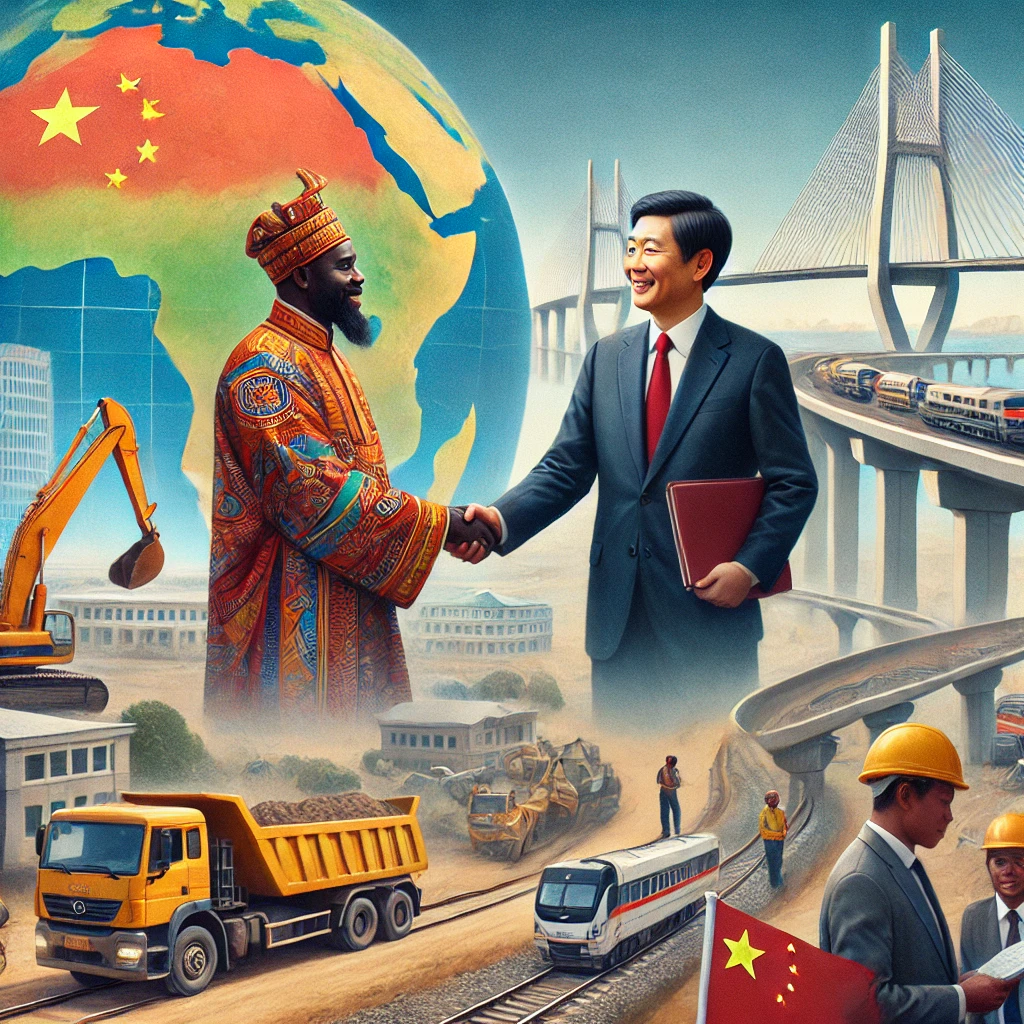
The decision by U.S. President Donald Trump to freeze foreign aid and shift focus away from traditional diplomatic commitments has left a significant vacuum in Africa. While this shift presents China with an opportunity to expand its soft power and influence across the continent, analysts argue that Beijing’s aid model does not fully address the critical gaps that U.S. assistance previously covered.
Across Africa, countries, humanitarian projects, and non-governmental organizations (NGOs) are grappling with the repercussions of Trump’s executive order, which imposed a 90-day freeze on U.S. foreign aid. Many are concerned about the broader implications of his foreign policy changes and the potential impact of a second term in office on Africa’s economic and social landscape.
Trump’s Africa Policy: A Transactional Approach
Unlike previous U.S. presidents, Trump does not regard Africa as a strategic priority, argues global affairs analyst Curtis A. Smith. His foreign policy is defined by transactional decision-making, leveraging deals, and prioritizing immediate returns over long-term institutional commitments.
“Trump is not a president driven by humanitarian concerns, multilateral cooperation, or sustained diplomatic frameworks,” Smith told The Africa Report. “He approaches diplomacy as a businessman, where every engagement is a deal to be won.”
Can China Seize the Opportunity?
Given Trump’s limited interest in Africa, some experts suggest that the continent should look to China to replace the support previously provided by the United States Agency for International Development (USAID).
Trump’s ‘America First’ agenda, which includes the foreign aid freeze, has created an opening for China to expand its influence in Africa, says Tenielle K. Ellis, a specialist in China-Africa relations. She suggests that China can capitalize on this gap by strengthening financial partnerships, offering medical assistance, and investing in education.
Between 2013 and 2023, China invested over $700 billion in Africa through its Belt and Road Initiative (BRI), according to China’s Ministry of Commerce. In September, during the Forum on China-Africa Cooperation (FOCAC) Summit, President Xi Jinping committed an additional $51 billion in funding over the next three years.
Recently, China’s International Development Cooperation Agency and the Center for International Knowledge on Development published a report highlighting ‘small and beautiful’ aid projects, showcasing China’s commitment to international development and humanitarian efforts.
According to Abdul-Gafar Tobi Oshodi, a political science lecturer at Lagos State University in Nigeria, China will likely use this opportunity to reinforce the perception that, while the U.S. abandoned Africa, Beijing remained a steadfast partner.
Differences in Aid Approaches
Despite China’s deepening financial engagement, experts caution that Beijing is unlikely to fully replace U.S. aid, says Federico Manfredi Firmian, an associate research fellow at the Italian Institute for International Political Studies.
China’s aid strategy relies primarily on loans and commercial investments rather than outright grants or humanitarian assistance. While Beijing is expected to strengthen its presence in infrastructure, technology, and trade, it is unlikely to step in to support USAID-funded healthcare programs, emergency relief initiatives, or governance efforts.
For countries heavily dependent on U.S. humanitarian aid, this distinction presents significant challenges. Even if China increases its financial contributions, many African nations may still struggle to fill gaps in public health, governance, and civil society funding.
Oshodi notes that the difference in aid models stems from ideological contrasts. The U.S. follows a ‘Washington Consensus’ approach that prioritizes governance reforms, while China adheres to a ‘Beijing Consensus,’ which emphasizes non-interference in the domestic affairs of recipient nations.
“China does not typically invest in vaccine procurement, HIV treatment programs, or gender equality initiatives in schools because these do not align with its broader strategy,” explains Bright Simons, founder of Ghana-based mPedigree. “Beijing’s focus is on hard infrastructure—building roads, railways, and ports—on the premise that material development will naturally lead to broader social improvements.”
The Decline of U.S. Influence
Beyond development aid, Trump’s foreign policy decisions have had wider consequences for Africa. His administration’s decision to withdraw from the Paris Climate Agreement and the World Health Organization (WHO) has further distanced the U.S. from key international development efforts that directly impact African nations.
According to policy analyst Ellis, China sees multilateral institutions like the WHO as crucial platforms for enhancing its global leadership and strengthening economic ties with Africa. This positions Beijing to increase its financial contributions, thereby reinforcing its image as a major global player.
“Africa relies significantly on the WHO and similar organizations for critical development support,” she says. “If China steps up its financial backing, it will not only expand its influence but also establish itself as an indispensable partner in Africa’s long-term growth.”
In 2016, after the U.S. first withdrew from the WHO, China increased its voluntary contributions by $30 million. While modest, this move sent a clear signal to the Global South—particularly African nations—that Beijing remained engaged even as Washington stepped back.
China’s Role in Climate and Energy Investment
The U.S. withdrawal from the Paris Climate Agreement has created another opportunity for China to expand its role in Africa. Since 2021, China has signed agreements for 90 clean energy projects across the continent, reinforcing its position as a leader in green technology and sustainable energy solutions.
Development economist Trevor Lwere notes that China is well-placed to expand its climate financing efforts, helping African nations transition to cleaner energy sources.
“As the global leader in green technology, China could increase funding for climate adaptation and energy transition projects to support its African partners,” Lwere argues.
Conclusion
The withdrawal of U.S. aid under President Trump has created a void that China is eager to fill. However, while Beijing’s financial engagement in Africa is expanding, its focus remains on infrastructure and economic investments rather than direct humanitarian aid. African nations will need to navigate this evolving geopolitical landscape carefully, balancing relationships with both the U.S. and China to ensure that their development goals are met in a sustainable and equitable manner.
